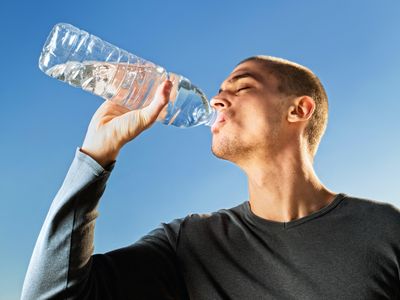Addiction is a serious issue in the LGBTQ community. So many of our loved ones, friends, and family have had to struggle with this medical condition without the support that they need.
Despite that, there are programs out there today that can help LGBTQ individuals with addiction start their recovery.
Here's a basic guide to getting sober in the LGBTQ community.
Challenges to Getting Sober in the LGBTQ Community
There are plenty of barriers to finding addiction treatment in our society, but the LGBTQ community faces some of the most serious societal barriers. We know this from personal experience, but international research also backs it up.
The Social Barriers to Treatment are Real
The LGBTQ community faces the same systemic barriers as everyone else with added unique challenges. Economic concerns, social barriers, and even the fight against hate crimes come into play when we consider addiction treatment.
Intersectional issues, such as race, class, and gender, also are obstacles to finding addiction treatment.
The good news is that groups are working to help LGBTQ individuals get treatment for substance use disorder.
The Importance of Treatment
Getting treatment for substance use disorder can help with everything from simply improving their quality of life to lowering the chance of life-threatening complications.
Research continues to demonstrate that rates of substance use disorder are higher for LGBTQ individuals than for members of the general population.
One study found that 86.4% of LGBTQ individuals with addiction do not have access to the addiction treatment they need. This is a substantial gap.
One Good Sign
There are some good signs on the horizon for the LGBTQ community. There is research that suggests that LGBTQ individuals are more likely to seek treatment for substance use disorder than their cisgender or heterosexual counterparts.
This is often despite the serious social barriers we've been talking about. Overcoming institutionalized homophobia and transphobia is no small task, but there are members of our LGBTQ community who are helping each other find the treatment they need.
What to Do When it’s Time to Get Sober
If you're reading this blog, then you've already taken the first steps towards recovery and sobriety. Searching for information on how to find treatment means you’ve already begun your journey towards recovery.
Here's some information that can help you understand the basics of getting sober.
Learn the Basic Types of Substance Abuse Disorder Treatment
There are many types of treatment programs for addiction. Successful addiction rehab often combines more than one, so it's important to understand the basic differences of the most popular types of treatment when you start looking for a plan.
All of these plans are designed to help you achieve your goals. Different plans cater to different needs and can help you balance recovery with the other responsibilities in your life.
There are many different treatment methods—behavioral therapy, medication-assisted treatment, 12-step facilitation—but two basic programs:
- Inpatient treatment: People stay in a residential facility throughout treatment, including eating and sleeping. This lets you focus on your recovery alongside a group of peers who are also working through their substance use disorder.
- Outpatient treatment: People visit the treatment center several times a week or daily, then go home. People in outpatient treatment usually have less severe addictions or already made progress toward their recovery. Outpatient programs allow individuals to maintain work, school, and social responsibilities while working on their recovery.
Addiction is a treatable, medical, condition that can be successfully managed with the right treatment program.
Getting Sober in a Community
A big part of sobriety is about finding or creating a community where you can safely and successfully practice sobriety. People, places, and situations associated with past substance use can trigger a relapse. Peer support is an important part of the recovery process.
This can be challenging in the LGBTQ community. Finding a group of individuals to understand and accept your identity while also supporting your recovery process can be difficult.
What to Look for in a Drug Rehab Center
There are a few things you should look for in an addiction treatment program.
First, find a program that is certified and accredited by independent organizations. It should also have experienced and certified treatment professionals.
It's important to find a program that offers treatment plans that can help you reach your goals. You also want to find a treatment center that openly stands up for supporting the recovery of individuals in the LGBTQ community.
These are the factors that come together to make the best alcohol rehab center.
Finding LGBTQ Addiction Treatment in Arizona
There are options for addiction treatment throughout Arizona. You can find LGBTQ addiction support groups in Arizona in major cities like Tucson and Phoenix. There are also options for finding a drug rehab center in Arizona that supports the LGBTQ community in more northern communities in the state like Flagstaff.
Reaching out to an alcohol and drug rehab center is your first step in getting the care that you need.
Sources
- Ontario.cmha.ca - Lesbian, Gay, Bisexual, Trans & Queer identified People and Mental Health
- Cdc.gov - Substance Use (Gay and Bisexual Men's Health)
- samhsa.gov - 2019 National Survey On Drug Use And Health: Lesbian, Gay, & Bisexual (LGB) Adults
- Drugabuse.gov - Substance Use and SUDs in LGBTQ Populations
- Drugabuse.gov - Types of Treatment Programs: Principles of Drug Addiction Treatment: A Research-Based Guide (Third Edition)
- Drugabuse.gov - Treatment and Recovery (Drugs, Brains, and Behavior: The Science of Addiction)
- Samhsa.gov - Recovery and Recovery Support
- Sunshinebehavioralhealth.com - Alcohol Rehab Huntington Beach, CA
- Gayandsober.org - Meeting Finder Arizona
